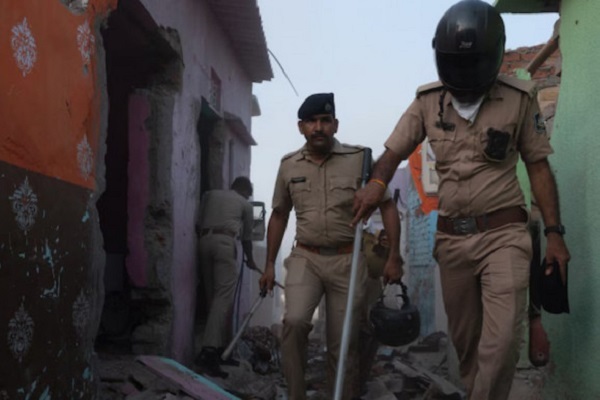Muslims in India Caught in Rising Anti-Immigrant Crackdown

Thousands of Muslims in India have found themselves facing deportation to Bangladesh, often without formal charges, court hearings, or verification of citizenship status, according to a recent investigation by The Washington Post.
The report highlights a growing campaign by Indian authorities to identify and remove so-called “illegal immigrants,” particularly following a deadly militant attack in Indian-administered Kashmir in April that killed 26 people. Since then, Indian officials—especially in BJP-ruled states like Gujarat and Assam—have intensified raids on Muslim neighborhoods, accusing many residents of being undocumented Bangladeshis.
One such case is that of Hasan Shah, a waste picker from Gujarat, who said he was taken from his home by police, blindfolded, bound, and eventually forced onto a boat. Three days later, he said, officers ordered him at gunpoint to jump into Bangladeshi waters. “If you look back, we’ll shoot you,” Shah recalled being told.
Read More:
Now stranded in Bangladesh, he insists he is an Indian citizen, supported by voter records and ID documents allegedly confiscated by police.
Bangladeshi authorities confirmed Shah’s account of arrival, and he remains separated from his wife and four children in India. “This isn’t my home,” he said in Satkhira. “I need to go back to India. I need to get back to my kids.”
From May 7 to July 3, at least 1,880 people were deported to Bangladesh, with 110 later returned after being identified as Indians, according to data cited by The Post. Interviews with dozens affected by the crackdown suggest that many had documentation proving citizenship or legal residence, but were never given the opportunity to present it.
Abdur Rahman, 20, said he was arrested in an early-morning raid in Ahmedabad and later beaten during his deportation journey. “They beat me brutally,” he said. “I felt like we all were going to die.” Rahman’s Indian identity was later verified through school and national ID records.
Mass demolitions of Muslim homes also accompanied the crackdown. In Ahmedabad’s Chandola Lake slum, municipal officials demolished over 12,000 homes shortly after raids detained nearly 900 people. Gujarat’s Home Minister Harsh Sanghavi praised the operation as part of a larger national security effort.
Read More:
Critics say the campaign reflects a pattern of targeting Muslims under the Bharatiya Janata Party's Hindu nationalist agenda. “Prove that I’m a terrorist,” said Yunus Khan Pathan, a day laborer whose home was bulldozed despite his verified Indian citizenship. “All I have is a Muslim name.”
International law experts and rights advocates argue the deportations violate both Indian civil rights protections and global legal norms. “You want a whole group to disappear,” said Rudabeh Shahid, a South Asia immigration expert.
Bangladesh has raised the issue diplomatically, but India’s Ministry of External Affairs has not responded publicly. Meanwhile, families like that of 72-year-old Misma Khatun—who was briefly left at the border and has since disappeared—continue searching for answers.
“I don’t even know if she is alive,” her son said.
Source: Agencies



